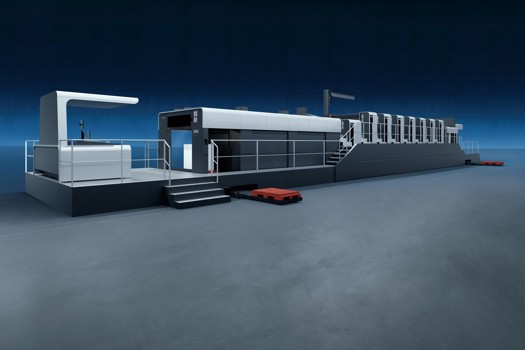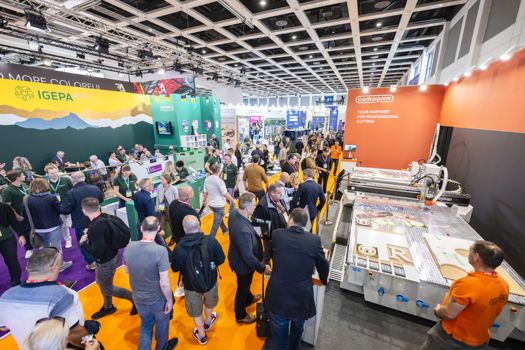It's the first time UPM has put a figure on the likely financial impact of the long-running strike, which was finally resolved at the end of last week.
Alongside its Q1 results for the three months to 31 March, the Finland-headquartered pulp, paper and biomaterials giant stated: “All in all, it is estimated that the strikes affected the Q1 results by approximately €180m-€220m, considering the lost sales, lower fixed costs and various dynamic impacts.”
The group also said that fixed costs compared to Q4 2021 were down by €103m due to seasonal reasons, scheduled maintenance at the Kymi pulp mill in Q4 – and the strike which ran from 1 January to 22 April.
Overall sales in Q1 were up 12% year-on-year at €2.5bn. Sales across all business units bar UPM Fibres rose, driven by higher sales prices.
President and CEO Jussi Pesonen said market demand was strong and UPM’s businesses overall had performed well.
“Prices increased significantly in all our businesses, more than offsetting the rise in variable costs.
“The result is a good achievement when viewed against the background of the strikes that took place at most of our Finnish mills and the war in Ukraine.”
Regarding the strike, Pesonen said it had “affected Q1 production volumes greatly”.
“We entered this negotiation round with a long-term view to ensure the future competitiveness of our business,” he stated.
“We achieved our goal, seven business-specific agreements, that improve productivity while at the same time offer competitive terms for our employees.”
He said the new agreements would improve flexibility and the opportunity for future investments, and “will ultimately benefit our customers, too.”
UPM employs more than 6,000 people in Finland, where it has more than €10bn of assets.
At UPM Communication Papers, the amount of paper delivered was down by 283,000 tonnes, or 20.3%, compared with Q1 2021 at just over 1.1m tonnes, but sales rose by nearly 23% to just over €1bn and comparable EBITDA more than doubled, rising from €47m to €106m.
Operating margins also more than tripled, to 8.6% (2021: 2.8%).
UPM said that average prices in euros were up 54% year-on-year, and “significantly higher sales prices” had more than offset higher variable costs, especially energy.
The figures also benefited from energy refunds relating to 2021.
UPM said that it made a €133m gain on last year’s sale of UPM Shotton in Deeside, and it also filed a €50m impairment charge relating to newsprint assets.
Regarding the market environment, UPM said that demand for graphic papers in Europe in Q1 was down 2% year-on-year. Magazine paper demand was down 7%, newsprint was up by 2%, and fine papers slipped 1%.
Publication paper prices were 74% higher year-on-year, with fine paper up 34%.
At UPM Raflatac, the world’s second-largest producer of self-adhesive label materials, year-on-year sales were up from €391m to €451m despite the strike, but operating margins more than halved, falling from 15.9% to 7.4%, in part due to a €13m provision for expected losses related to Russian trade receivables.
Variable costs were also significantly higher.
UPM did not state the tonnage of label paper deliveries.
At UPM Specialty Papers, which includes release liners for labelling, packaging, office and printing papers, sales were up from €355m to €377m year-on-year.
Paper deliveries were down by 63,000 tonnes at 371,000 tonnes.
Comparative EBITDA almost halved, from €73m to €38m, while operating margins fell from 15.3% to 4.9%.
UPM said that production and delivery volumes were lower due to the strike, but sales prices increased. EBIT was impacted by higher input costs.
At UPM Plywood sales grew from €112m to €164m, and it made record EBITDA at €50m (2021: €14m), but the unit made an operating loss of €20m due to €52m of impairment and other charges mainly due to the Russian invasion of Ukraine.
For the overall UPM group, Russia’s war in Ukraine has resulted in impairment charges of €95m, plus an expected €17m loss on trade receivables.
UPM has suspended operations at its UPM Chudovo plywood mill in Russia and has stopped sourcing wood from the country, along with halting deliveries of other products.
Pesonen said the group’s primary concern was the people suffering from the war, and UPM has started delivering humanitarian and material aid to Ukraine.
Pulp and timber business UPM Fibres, part of the reportable segments reorganisation at the start of this year and comprising UPM Pulp and UPM Timber, filed sales down 28% at €404m.
Pulp deliveries slumped from 952,000 tonnes to 461,000 tonnes. Two thirds of pulp production was down because of the strike.
Operating margins fell from 13.8% to 9.1% year-on-year, and from 27.3% in Q4 2021.
Average prices for UPM’s pulp deliveries jumped by 33% year-on-year.
UPM Energy, its zero carbon energy business, benefited from “significantly higher sales prices” and posted sales up €24m at €143m while operating margins grew to 44.3% (2021: 42.1%).
UPM’s ‘Other operations’ unit includes UPM Forest, Biofuels and Biochemicals, and Biocomposites, along with biofuels development.
UPM Biofuels had no production whatsoever in Q1 due to the strike action.
Sales for the unit fell from €110m to €70m year-on-year, and the operating loss was €61m, after a €33m impairment charge mainly relating to the Russian conflict situation.
Regarding the outlook, UPM said there were “significant uncertainties” ahead due to the war in Ukraine, the ongoing situation regarding the pandemic, European and global economic growth, the energy market in Europe and tight raw materials and logistics markets.
It expects sales prices and variable costs to increase in the first half of 2022 at most of its business.
“UPM will continue to manage margins with product pricing, optimising its product and market mix, and efficient use of assets”, as well as efficiency measures.
UPM shares rose by 2.15% to €32.28 after the results announcement.










